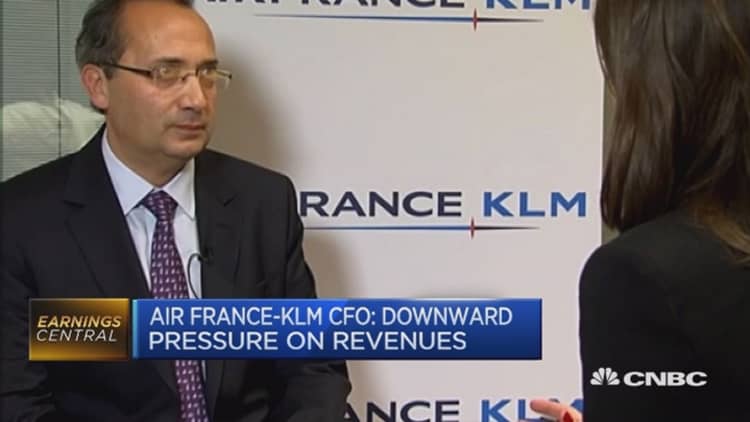





Some of France's leading travel companies have shrugged off the security and terrorism threats that shook the nation's confidence over the past year.
Europe's largest hotelier, AccorHotels reported a 2.3 percent rise in full-year sales, to 5.58 billion euros ($6.2 billion) in 2015, despite seeing signs of weakness in Brazil and its biggest market, France.
The chief executive, Sébastien Bazin admitted the company was "suffering in France", with the country seeing a 6.6 percent decline in 2015's fourth quarter, mainly attributed to the booking cancellations following the November terror attacks in Paris.
Despite this, Bazin remained confident for the company's future.
"We had a difficult year in France yet we prevailed with record numbers in terms of sales, profit and cash flow," Bazin told CNBC Thursday.
"We're going in the right direction, and we're going to be adapting to that hyper volatile environment, wherever it is."
When it comes to bookings and security threats, Bazin said they had to be "hyper cautious and watch out", adding that AccorHotel's first few months would be "fragile", but 2016 overall looked "pretty good."
"We have actually a pretty good year in front of us, in terms of tourism. We are in a blessed industry, in which the numbers of international travelers keep spending at 4 percent per annum, far greater than the level of hotel supply."
"Let's be very minded, very cautious, let's adapt and protect our employees; but let's not be pessimistic."
Transportation speeds ahead
French transport businesses have also had to factor in potential security threats, after terror threats and the migrant crisis, forced the country to be extra vigilant.
Air France-KLM flew back into profit in 2015, despite the January and November French terror attacks impacting the number of bookings the airline received.
"(The Charlie Hebdo attack) badly hit our customers, especially in the Japanese market. With the November 13 attacks, we had a second hit. We estimate that the second hit impact was about 120 million euros that impacted us somewhere in November/ December," Pierre-François Riolacci, chief financial officer at Air France-KLM told CNBC Thursday.
"However, to be totally transparent, we believe that this impact today has nearly 100 percent faded away and we hardly see any impact from February onwards."
"These (terrorist) attacks are not good news for anyone, especially for the airline industry… (however) people are not going to stop leaving or stop travelling."
Channel Tunnel operator, Eurotunnel revealed on Thursday that it had asked the U.K. and French government for a 29 million euro compensation package, predominantly for the revenue it lost from the disruptions caused by "the attempted intrusions by migrants" at the French port of Calais, during 2015.
During June to October 2015, the French firm's shuttle services had been "badly affected" after thousands of migrants tried to board trucks and trains, which were travelling to the U.K. Despite rail freight trains running through the tunnel falling 17 percent in 2015, the company said "activity improved significantly" after security measures were implemented in late October.
This comes as the French firm reported its annual results for the last year. Eurotunnel's 2015 revenue came in at 1.22 billion euros ($1.35 billion), a 5 percent increase from 2014's figure.
Its chief executive, Jacques Gounon said Eurotunnel had trimmed its forecast for 2016's earnings before interest, taxes, depreciation and amortization (EBITDA) by 20 million to 560 million euros, Reuters reported, as it remained cautious due to persisting risks of terrorist attacks and migrant pressure.
—By CNBC's Alexandra Gibbs, follow her @AlexGibbsy and @CNBCi






